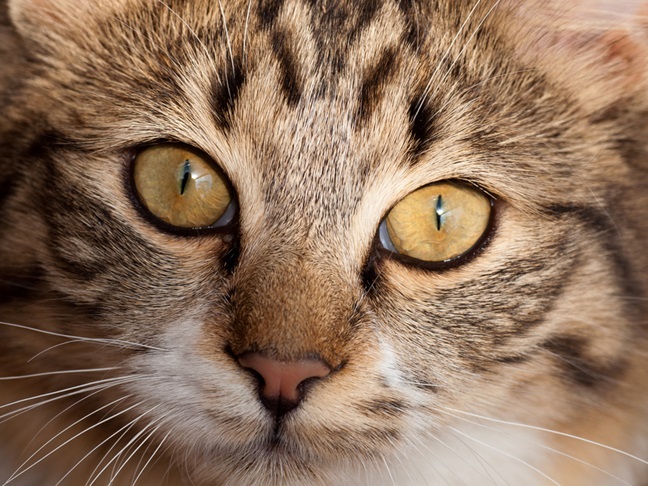Annual Wellness Checkup
It’s a fact that fewer cats get to visit the veterinarian than dogs. One of the reasons is that cats are very good at masking and hiding symptoms when they are, in fact, sick. It’s important that every cat, no matter her age, visit a veterinarian at least once a year. The cost of a wellness check-up is far less than the cost of treating a medical condition down the road. Take advantage of dental cleaning offers but make sure that a registered veterinary technician performs dental cleaning procedures(if you are not having the cleaning done at the veterinarian’s office). Bacteria in the mouth—if left unchecked—is ingested internally and can cause major medical issues such as heart and kidney disease. If your cat has bad breath, there could be a dental issue, which should be attended to immediately.
It’s also important to note any changes in her daily habits. If she suddenly starts drinking more water than usual or, suffers rapid weight loss, it’s important to check it out as cats are prone to both diabetes and kidney diseases. Worried about your wallet? Ask your veterinarian if he has a payment plan. Many will discuss a financial arrangement with you such as splitting the credit card payment over several months.
Flea Control
Just one fleabite can cause your cat to develop an allergic dermatitis. Even if your cat has an indoors-only lifestyle, it’s important to remember that the family dog or even you can bring them into the home. Fleas spend only about 20% of their time on your cat; the rest of their lifespan is spent free-ranging in your home. So it’s easy to understand how quickly a flea infestation can get out of control.
One of the easiest ways to see if fleas already exist, is to walk about the home and the yard in a pair of long white sock as it will be easy to spot them. Instantly secure the socks in a plastic bag and throw them away or put into the washing machine for a hot wash. The safest, most natural form of flea control for cats is the flea comb. It has tiny teeth to remove fleas, flea eggs and larvae as well as fine debris and dust from all coats. Every cat owner should own one. Apart from being an excellent way to find fleas, it’s a great way to monitor the effect of any treatment.
There are special ultraviolet vacuum cleaners on the market designed to deal with fleas. They use UV Light in the “C” spectrum (UV-C) to deactivate the DNA of flea eggs, along with dust mites, bacteria, viruses, germs and molds, thus destroying their ability to multiply. It’s a worthwhile investment if you live in a part of the country that is constantly plagued by a flea problem. Before you use any topical flea treatment consult your veterinarian to ensure that it’s safe for your cat or kitten. And never use dog treatments on your cat! Also remember: often household flea treatments are toxic to all pets, so be sure to find them alternative temporary accommodation if you are going to do an intensive treatment.




